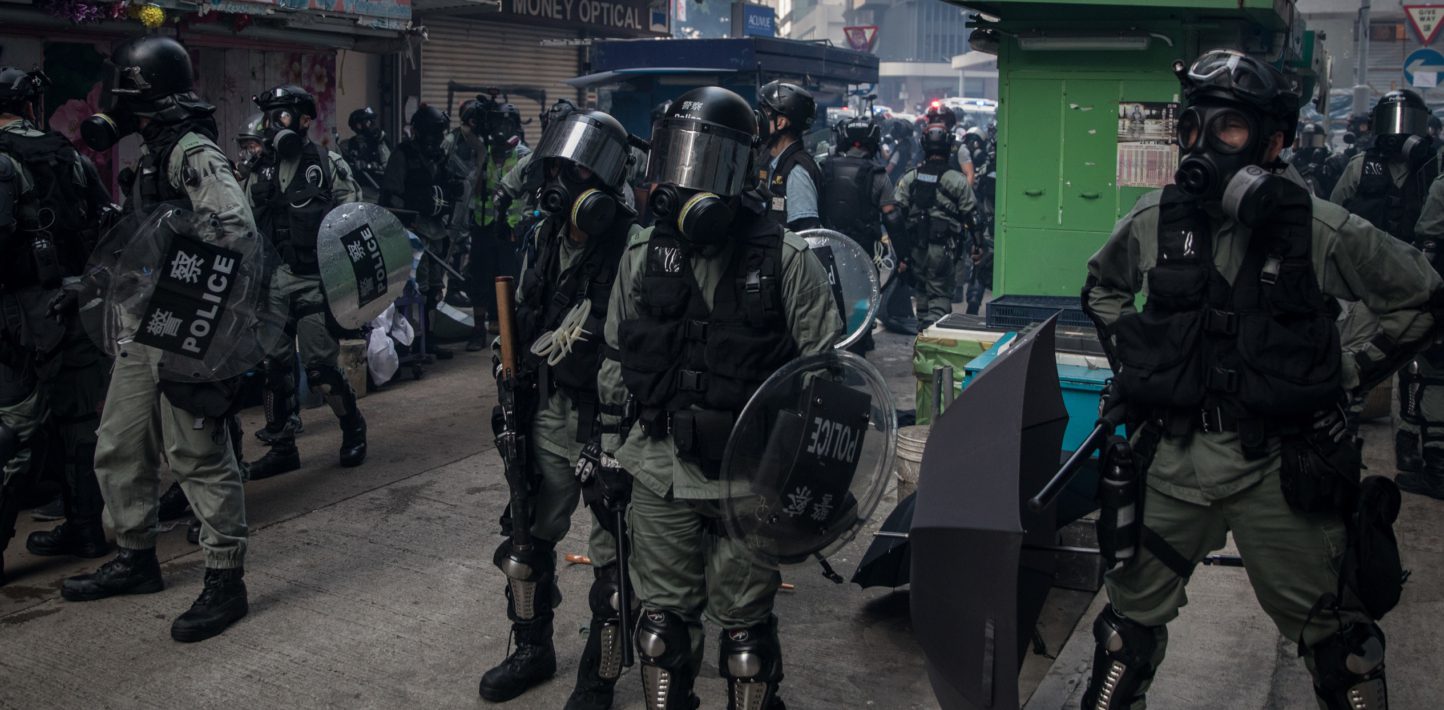By Jan Wetzel, Amnesty International’s Senior Legal Advisor for East Asia
As the Chinese authorities move to the next stage of bulldozing through a national security law for Hong Kong, let there be no doubt: this is Beijing’s most breathtaking, threatening and callous attack yet on the enjoyment of human rights in the city.
In recent years we have witnessed a creeping and gradual erosion of human rights in Hong Kong. No more. With this law, the process is dramatically accelerated, as Beijing discards any pretence of fulfilling its international promises made in the run-up to the 1997 handover.
China’s own National Security Law of 2015 contains a definition of “national security” that is virtually limitless, covering wide areas including politics, culture, finance, the internet and “other major interests of the state”.
Beijing’s plan for Hong Kong essentially sidelines the local legislature by directly outlawing acts of “separatism”, “subversion” and “terrorism”, as well as “activities by foreign and overseas forces that interfere” in the territory.
To guess how this might be implemented, one only needs to look at how similar terminology has been applied in the mainland – and it paints a terrifying picture.
“Anti-separatism” campaigns have been particularly severe in Xinjiang and in Tibetan-populated areas. Tashi Wangchuk was sentenced to five years’ imprisonment for “inciting separatism” after featuring in a video produced by the New York Times highlighting his campaign for Tibetan language education in schools.
“Inciting subversion of state power” is a catch-all charge often used against dissidents and activists who speak out against the government. “Subversion” brought lawyer Wang Quanzhang a four-and-a-half-year prison sentence for defending human rights and exposing corruption, after his family was kept in the dark for almost three years as to whether he was even alive.
In China, a new anti-terror law in 2015 legalized a targeted assault on freedom of religion and expression, as well as the rights of ethnic minorities. Countering so-called “terrorism” has allowed for the internment of an estimated million Uyghurs and other predominantly Muslim people in political “re-educations” camps in Xinjiang.
“Foreign interference” is a familiar accusation by mainland and Hong Kong officials, who attempt to frame local movements like the 2014 Umbrella street occupations and the 2019 protests as the beginnings of a “colour revolution” instigated by “hostile foreign forces”.
On the mainland, China’s 2016 “Foreign NGO Management Law” gives the authorities virtually unchecked powers to target NGOs, restrict their activities and ultimately stifle civil society.
Defenders of a national security law for Hong Kong say it will still be applied through local authorities and subject to safeguards by local courts. But this seems less than certain once mainland national security agencies are operating openly in the city.
And it should not be forgotten that ultimate decision-making power on the “interpretation” of Hong Kong law falls to the National People’s Congress’ Standing Committee, the same body now tasked with formulating the new law.
On the mainland, the application of the national security paradigm to all kinds of allegedly dissident activity leads to circumvention of any safeguards the regular criminal justice process provides.
One most ominous symbol of this approach is “residential surveillance in a designated location”, a power that can enable criminal investigators to hold individuals for up to six months outside the formal detention system in what can amount to secret and incommunicado detention. Accused are held without access to legal counsel of their choice or to their families and are at great risk of torture and other ill-treatment.
This is the bleak reality of human rights in China, and now Beijing is about to force its own abusive national security blueprint onto Hong Kong.
But why now?
Violence used by some protesters during the overwhelmingly peaceful assemblies over the past year has been given as the principal reason the central government feels the need to act.
Yet it is unclear which alleged acts by protesters could not already be prosecuted under existing laws in Hong Kong. On the contrary, local prosecutors have shown no hesitation to charge protest organizers and pro-democracy leaders with anything remotely in reach, including “incitement to incite” and even “sedition”.
The callous truth is that Beijing clearly calculates that the global focus on the COVID-19 pandemic will make trade relationships even weightier a bargaining chip and prevent other governments from launching any meaningful defence of this city of eight million people.
But this is no time for the international community to retreat into COVID-19-induced isolation or rely solely on quiet diplomacy.
Experience shows that China’s opinion can be swayed if it is confronted with strong political headwinds and sustained public pressure.
Hong Kong people are already taking to the streets again to show they will continue demanding their freedoms. But this time they may not be able to do it alone.
This article was originally published by Hong Kong Free Press


